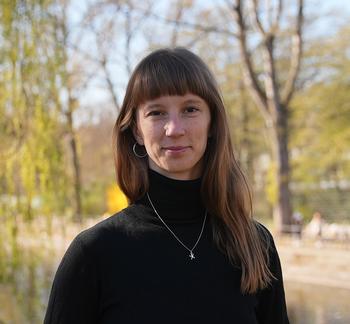Jana Kluiber

International Research Training Group 'Temporalities of Future in Latin America'
PhD Candidate
Anthropology
Project: "Bodies that Care. An Ethnographic Approach to the Experiences of Female Health Care Workers in the Migration Infrastructures between Latin America and Germany"
14195 Berlin
Education
|
Since 05/2025 |
PhD Candidate, International Research Training Group ‘Temporalities of Future’ |
|
10/2021 – 04/2024 |
Master in Interdisciplinary Latin American Studies at Freie Universität Berlin, Germany |
|
10/2018 – 06/2019 |
Exchange year (ERASMUS+) at the University of Sevilla, Spain |
|
03/2017 – 08/2021 |
Bachelor in Spanish Philology at the University of Innsbruck, Austria |
Work Experience
|
Since 05/2025 |
Researcher, International Research Training Group ‘Temporalities of Future’ |
|
08/2024 – 05/2025 |
Coordinator of the scholarship programme Deutschlandstipendium at Hochschule für Technik und Wirtschaft Berlin, Germany |
|
05/2023 – 07/2024 |
Tutor for Academic Writing at Studierendenwerk Berlin, Germany |
|
01/2023 – 03/2023 |
Research stay and co-curation of the exposition Nuestra furia es conciencia at the Museum of Memory and Human Rights, Chile |
|
04/2022 – 10/2022 |
Student Assistant for the ‘Maria Sybilla Merian Centre Conviviality-Inequality in Latin America’ (Mecila) at the Ibero-American Institute, Germany |
|
04/2021 – 12/2021 |
Research Internship at the Project ‘Verbal Violence Against Migrants in Institutions’ (VIOLIN) at Friedrich-Alexander-Universität Erlangen, Germany |
|
10/2020 – 09/2021 |
Coordinator of the Centre for Inter-American Studies at the University of Innsbruck, Austria |
|
09/2019 – 12/2019 |
Internship at ‘Fundación porCausa – investigación, periodismo y migraciones’ in Madrid, Spain |
Project: "Bodies that Care. An Ethnographic Approach to the Experiences of Female Health Care Workers in the Migration Infrastructure between Latin America and Germany"
Supervisor: Prof. Dr. Stephanie Schütze, Freie Universität Berlin
My doctoral project focuses on the experiences of female care professionals migrating from Latin America to Germany in order to work in public health care institutions. Based on the biographical accounts of the health workers, I focus on the migration infrastructures (Xiang and Lindquist, 2014) that interfere in their trajectories. In a first step, I examine the decision to migrate and the aspirational narratives regarding the future in Germany, shaped by interactions with different intermediaries such as recruitment services, language schools or migrant communities. In a second step, I analyze the role of these intermediaries in constructing the previously imagined future in Germany, paying particular attention to the regimes of representation that the care workers encounter. In this context, I explore how these practices of aspiring and creating a future in another country as a care worker are being inscribed in the women's bodies. The ethnographic approach allows an in-depth understanding of the hopes, aspirations and future making practices of care workers throughout the migratory process, understanding them as agents and authors of their trajectories. I will therefore focus in particular on strategies of resistance and collective care that they develop in their daily lives. Thus, I seek to explore the potential of care, based on temporalities opposed to the capitalist logic of commodifying affection and time, to create a future oriented toward the sustainability of life (Carrasco, 2001).


